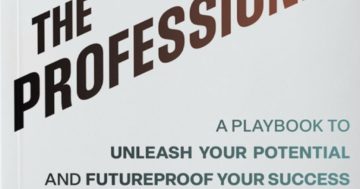Adam Bryant* says when the high-fives are over, it’s important to interrogate the reasons behind your wins.
 We are rapidly approaching the three-year anniversary of the start of the pandemic.
We are rapidly approaching the three-year anniversary of the start of the pandemic.
Anybody running a business during this period has experienced the stomach-churning ride of this roller-coaster economy—the freefall at the outset, followed by surging demand, and now, with the war in Ukraine, the likelihood of a global slowdown.
The leaders who have managed through these turbulent times have learned a lot about how to navigate crises.
But strengthening muscles for dealing with uncertainty can mean less time for another crucial leadership discipline: interrogating the how and why behind a success.
What did you do to pull it off? Can it be replicated? What did you learn?
It’s an exercise that many leaders I’ve interviewed talked up even before the pandemic.
“I’ve learned to question success a lot more than failure,” said Kat Cole, who is the president and chief operating officer of Athletic Greens, a nutrition company.
As she told me in an interview years ago, “I’ll ask more questions when sales are up than I do when they’re down.
“I ask more questions when things seem to be moving smoothly, because I’m thinking: ‘There’s got to be something I don’t know. There’s always something.’”
“This approach means that people don’t feel beat up for failing, but they should feel very concerned if they don’t understand why they’re successful.”
Successes can feel like moments for celebration, rather than furrowed-brow scrutiny.
But it is precisely those moments of interrogation that can lead to insights and longer-term competitive advantages.
Today’s shorter economic cycles create more momentum, both good and bad, and you want to be riding a wave rather than trying to paddle against it.
For example, in this environment, longer-term strategies—which were a reasonable proposition in the comparatively stable pre-pandemic world—have, out of necessity, increasingly been replaced with shorter-term bets.
Understanding why some succeed can help companies figure out strategies to address pressing challenges like finding the right return-to-office policy or developing new products and services to help accelerate a digital transformation.
A company’s leadership may be so pleased to share good news that they lack the emotional distance to ask the probing questions about their successes, or about whether, for example, market insights about the popularity of a new product require shifts in the way capital is being allocated.
Boards of directors are well-positioned to provide much-needed scrutiny.
As George Barrett, who led Cardinal Health for nearly a decade and now serves as a director at companies such as Target, told me, leadership teams and boards are quick to engage in tough conversations about performance when there are challenges.
But the bigger challenge can come when things are going well.
“The really important questions are often not asked at the right moments,” he said.
“Asking probing questions when things are going well can illuminate important insights.
“For example, this might allow you to understand that our actual numbers look good, but there’s a tailwind that is masking a problem.
“Or now this solid performance tells us we’re onto something really important, and if we don’t leverage this, our competitors are going to be right there with us in two months, so how do we accelerate this or scale this differently?
“It’s that burning question of ‘why?’
“It’s important to celebrate successes, but it is important to ask tough questions.”
Leaders shouldn’t have to wait for their board meetings to start this type of interrogation.
Even with an ever-lengthening list of urgent challenges to address, leaders should place the word “why?” at the top of it, as a reminder to get to the bottom of unexpected triumphs.
Questioning successes as much as failures is timeless leadership advice that feels particularly timely now.
*Adam Bryant is a managing director of the ExCo Group, a senior-leadership development firm. He is the author, with Kevin Sharer, of The CEO Test: Master the Challenges That Make or Break All Leaders.
This article first appeared at strategy-business.com.











